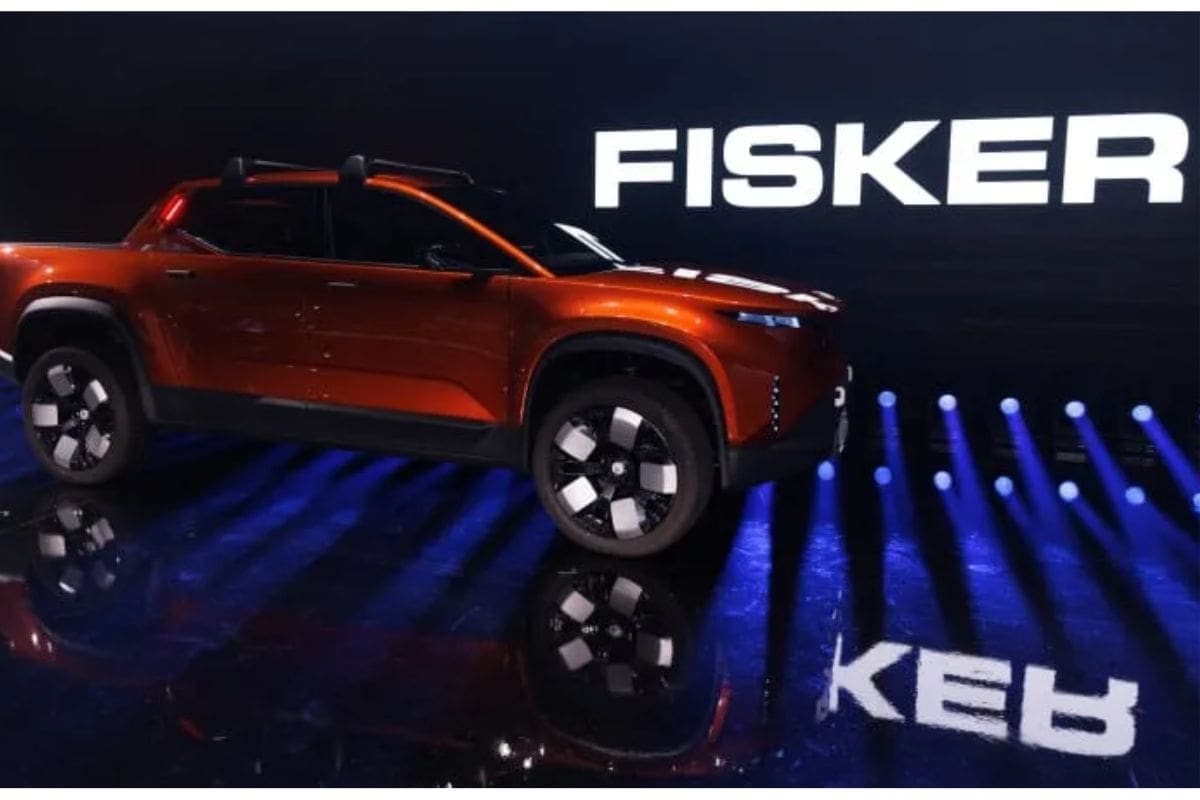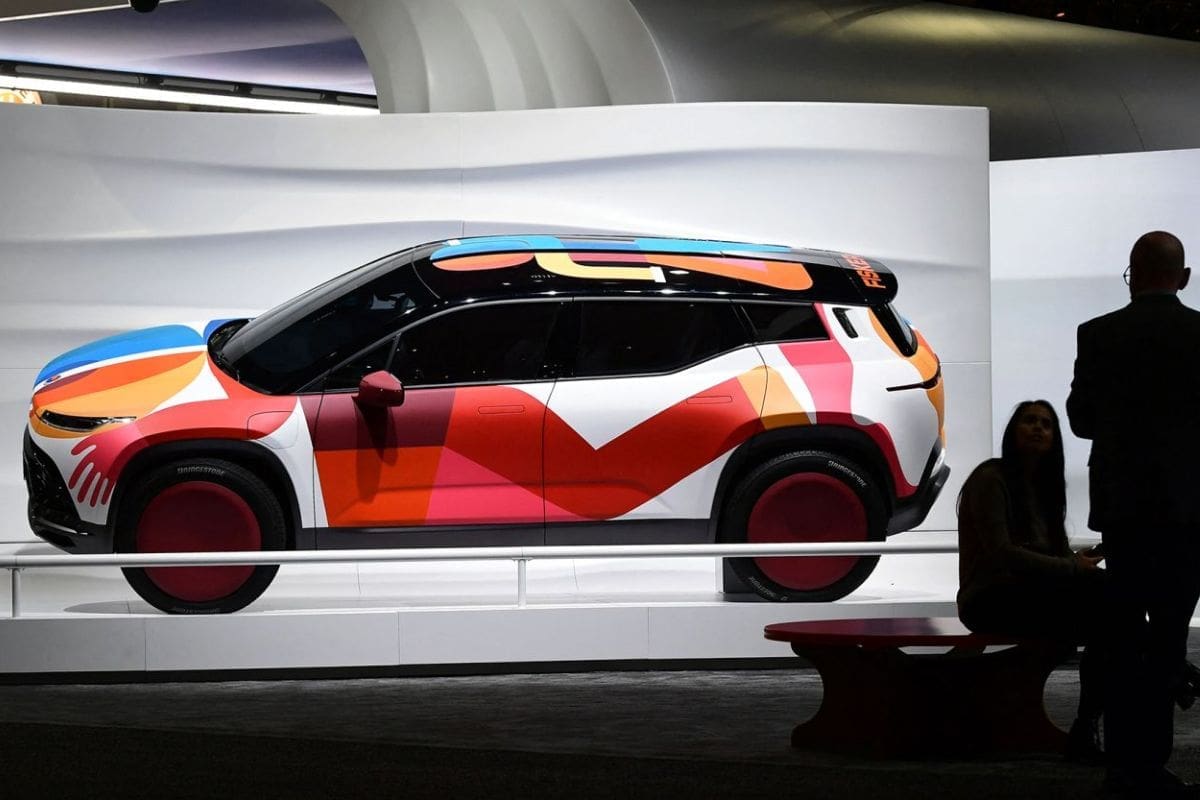Fisker Shares Halted Amid EV Company: Fisker’s shares halted signal a financial crisis and impending delisting, revealing the brutal truth facing the EV industry. Talks collapsing with a major automaker exacerbate Fisker’s woes, showcasing the cutthroat nature of the market. Quality concerns surrounding the Ocean SUV add to Fisker’s struggles amidst fierce competition from industry heavyweights like Tesla and Ford. The EV sector’s unforgiving landscape proves challenging for emerging companies. This turmoil marks a pivotal moment for Fisker and the broader electric vehicle market, shedding light on the harsh realities ahead. Stay tuned for the full story on Fisker’s turbulent journey.
Fisker’s Financial Struggles and Delisting
Fisker’s shares came to a screeching halt amidst the electric vehicle company’s looming financial crisis and the looming threat of delisting from the New York Stock Exchange. The sudden stoppage sent shockwaves through the market, reflecting the severity of Fisker’s current predicament.
With the New York Stock Exchange eyeing delisting due to the company’s alarmingly low stock prices, Fisker finds itself in a dire position that raises serious doubts about its future viability. The warning signs were already present in the March earnings report, where concerns over dwindling cash reserves were glaring.
Now, faced with the imminent delisting, Fisker is confronted with the challenging task of repurchasing bonds and settling debts, adding further strain to its already fragile financial stability. This turn of events underscores the harsh realities of the electric vehicle industry and serves as a cautionary tale for companies maneuvering the treacherous waters of the market.
Challenges in EV Industry and Failed Negotiations
Amidst the tumultuous landscape of the electric vehicle industry, the abrupt halt in Fisker shares reflects a broader narrative of challenges and failed negotiations plaguing emerging players in this dynamic market. Fisker’s recent struggles serve as a stark reminder of the cutthroat nature of the EV industry, where even promising companies face uphill battles.
The collapsed talks with a major automaker not only dashed hopes of a potential lifeline for Fisker but also highlighted the ruthless competition and high-stakes maneuvers prevalent in the sector. As the EV market continues to evolve at breakneck speed, failed negotiations like these underscore the unforgiving reality awaiting those who dare to venture into this fiercely competitive arena.

ALSO READ: Fisker Braces for Bankruptcy: EV Startup’s Fate Uncertain
Best For: Those seeking a sleek and eco-friendly option in the competitive electric vehicle market.
Pros:
- Stylish design that sets it apart from traditional electric vehicles.
- Environmentally conscious manufacturing processes.
- Innovative technology features for a modern driving experience.
Cons:
- Financial instability and uncertainties due to failed negotiations.
Quality Concerns and Intensified Competition
In the domain of electric vehicles, the landscape is filled with escalating quality concerns and an intensified battle for market dominance, casting a shadow of uncertainty over Fisker’s future prospects. Fisker’s once-promising Ocean electric SUV has been marred by criticism from influential voices like Marques Brownlee and damning reviews from Consumer Reports, eroding consumer trust in the brand’s flagship offering. The negative spotlight on Fisker’s quality control issues threatens to derail its momentum in an already cutthroat market environment.
Moreover, Fisker faces a challenging challenge from established automakers flooding the market with their own electric SUVs, intensifying the competition to unprecedented levels. With giants like Tesla, Ford, and Volkswagen aggressively expanding their electric vehicle portfolios, Fisker’s foothold in the industry grows increasingly precarious. The company’s struggle to differentiate itself amidst this fierce competition raises doubts about its ability to secure a significant market share and solidify its position in the rapidly evolving electric vehicle sector.
News in Brief
Fisker’s shares halt amid financial crisis and impending delisting, signaling the harsh reality of the EV industry. Talks collapse with a major automaker, exacerbating Fisker’s woes amidst quality concerns surrounding the Ocean SUV. The turmoil marks a pivotal moment, shedding light on the challenges for emerging EV companies amidst fierce competition from industry heavyweights like Tesla and Ford. Stay tuned for more on Fisker’s turbulent journey.
Our Reader’s Queries
Q. Why is Fisker stock halted?
A. Fisker, a California-based electric vehicle startup, saw its shares halted on Monday. This action follows the company’s cautionary statement in a March earnings report, suggesting insufficient cash reserves to sustain operations through the year.
Q. What is the outlook for Fisker?
A. Fisker’s average price target stands at $1.11, derived from 12-month projections by 6 Wall Street analysts within the last 3 months. Projections range from a high of $2.00 to a low of $0.75, reflecting a potential 789.42% increase from the current price of $0.125.
Q. Why did the Fisker fail?
A. Yet, the A123 battery failure and subsequent recall, coupled with the bankruptcy of the battery supplier, posed significant challenges and incurred added expenses in manufacturing the Karma model, ultimately contributing to Fisker’s bankruptcy.
Q. Why will a stock be halted?
A. Trading halts can arise from various factors, with volatility and pending news ranking among the most prevalent triggers. Additionally, reasons may include failure to document filings with the SEC, suspected fraud or market manipulation, and insufficient funds to pay the clearinghouse. Short stock halts occur regularly as part of daily trading operations.

